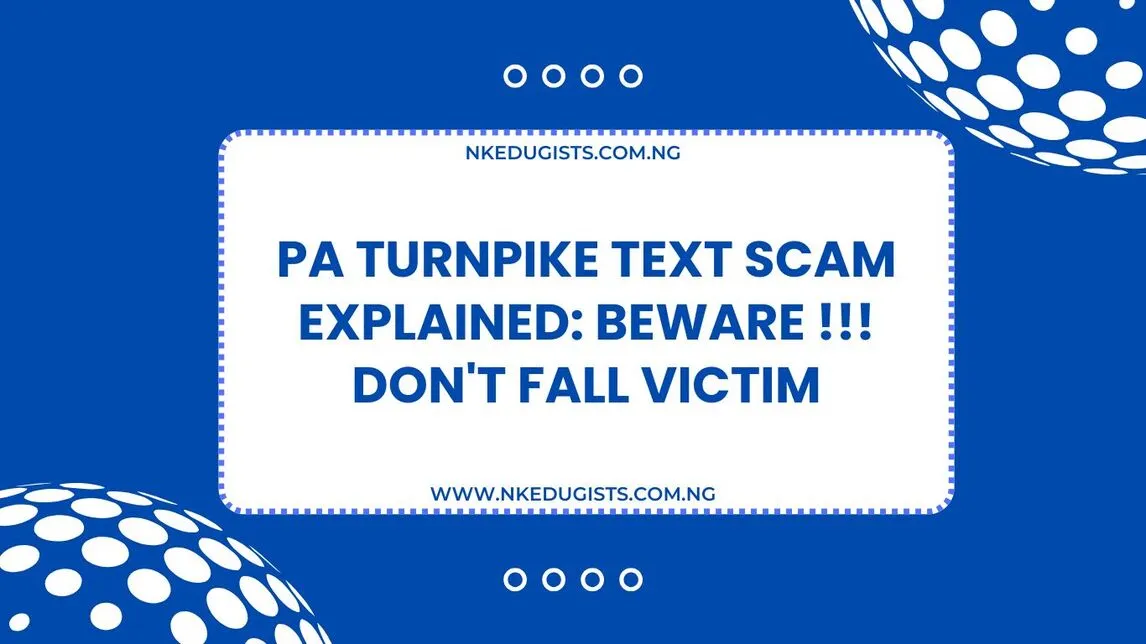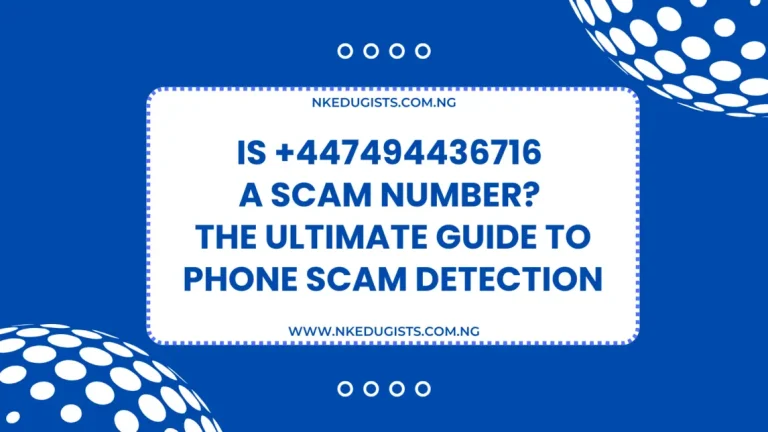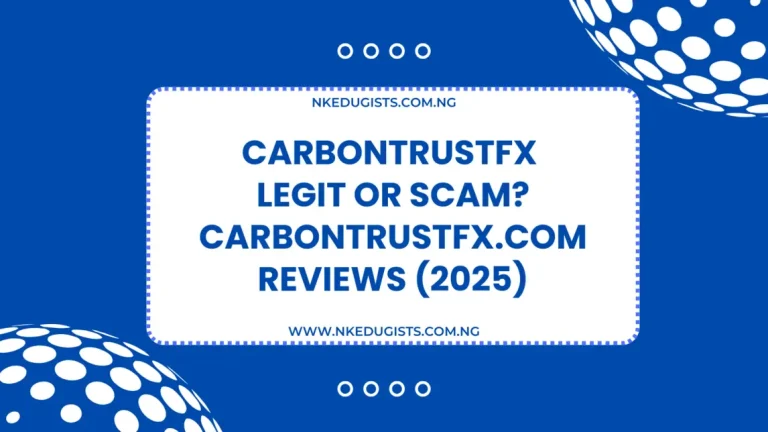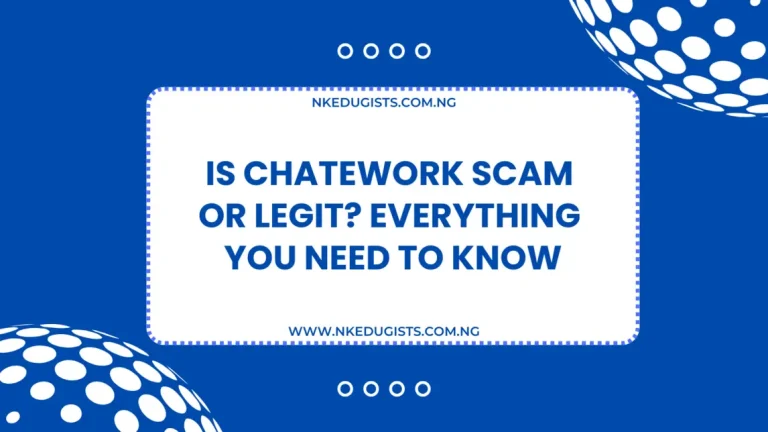
PA Turnpike Text Scam Explained Beware Don't Fall V!ctim
Imagine you’re going about your day when your phone buzzes with a text message claiming to be from the Pennsylvania Turnpike Commission.
The message states you have an unpaid toll of $8.60 that will increase to $86.00 if not paid immediately. There’s a convenient link to click to make the payment.
Seems legitimate, right? Wrong.
Since April 2024, thousands of Pennsylvania residents have been targeted by a sophisticated “smishing” (SMS phishing) scam impersonating the Pennsylvania Turnpike Commission.
The scam has evolved over time, with new variants emerging as recently as February 2025, coinciding with the PA Turnpike’s switch to open-road tolling.
What makes this scam particularly effective?
Many recipients have recently traveled on the turnpike, making the message seem plausible. The threat of late fees creates urgency, and the relatively small initial amount ($8.60) doesn’t raise immediate suspicion.
In this comprehensive guide, we’ll expose every aspect of this growing threat, provide you with actionable steps to protect yourself, and share official information from the Pennsylvania Turnpike Commission about how they communicate with customers about unpaid tolls.
What Are PA Turnpike Text Scams?
PA Turnpike text scams are a form of “smishing” — a combination of “SMS” and “phishing” — where fraudsters send text messages posing as the Pennsylvania Turnpike Commission or related toll services.
These scams fall under a broader category of impersonation fraud that targets users of toll roads across the country.
Similar scams have been reported impersonating the New Jersey Turnpike Authority, Maryland’s DriveEZMD, Massachusetts’ EZDriveMA, and other toll agencies nationwide.
Key Characteristics:
- Impersonation: The texts claim to be from “PA Turnpike Toll Services” or similar official-sounding entities.
- False Urgency: Messages create a sense of urgency by threatening additional fees or legal action.
- Deceptive Links: They contain links to fraudulent websites designed to steal personal and financial information.
- Widespread Targeting: According to the PA Turnpike Commission, these texts are sent to random Pennsylvania cell phone numbers, not just E-ZPass customers.
According to FBI reports, smishing attempts increased by 328% in 2024 compared to the previous year, with toll-related scams being particularly prevalent in states with major highway systems.
How PA Turnpike Text Scam Works
Understanding how these scams operate is crucial to avoiding them. Here’s the typical process:
First, the scammer sends a text message claiming to be from the PA Turnpike. The text states you have an unpaid toll balance and warns of penalties if not paid immediately.
The message includes a link that may appear legitimate at first glance. Some versions even use Google’s Accelerated Mobile Pages (AMP) framework to make the link appear to come from Google.
If you click the link, you’re directed to a convincing but fraudulent website that mimics official PA Turnpike payment portals. Recent versions have even included CAPTCHA verification steps to appear more legitimate.
The fake site prompts you to enter personal information such as:
- Name and address
- Driver’s license number
- Credit card information
- Bank account details
- Social Security number
Once scammers have your information, they can now make unauthorized charges to your credit cards, access your bank accounts, commit identity theft or even sell your information to other criminals on the dark web
As reported by Kathy Judge, a 71-year-old retired flight attendant from Clarks Summit, the experience can be terrifying: “I was like ‘Oh jeez, I don’t want to owe the Pennsylvania Turnpike,'” she told The Philadelphia Inquirer after falling victim to the scam in February 2025.
How to Spot a Fake PA Turnpike Text (Red Flags)
Protecting yourself starts with being able to identify suspicious messages. Here are the key red flags that indicate a text is not from the legitimate PA Turnpike Commission:
1. The PA Turnpike NEVER Sends Text Messages About Tolls
The most important fact to remember: According to the Pennsylvania Turnpike Commission’s official website, “The PTC does not text our E-ZPass or Toll By Plate customers” about toll payments or balances.
2. Unusual Phone Numbers
Beware of International phone numbers (especially those starting with +63, the country code for the Philippines) and Random U.S. numbers with no connection to official PA Turnpike phone lines
3. Suspicious Links
- Links that don’t end in .gov or paturnpike.com
- Shortened URLs (bit.ly, tinyurl, etc.)
- Links that appear to be Google URLs but aren’t (Google AMP scams)
4. Linguistic Red Flags
- Misspellings and grammatical errors
- Odd phrasing or awkward sentence structure
- Generic greetings (“Dear Customer”) rather than your name
5. Urgency and Threats
- Warnings about immediate legal action
- Extremely short deadlines to make payment
- Threats of excessive penalties (e.g., an $8.60 toll increasing to $86.00)
6. Unusual Payment Methods
The scammer usually requests for payment via gift cards, wire transfers, or money apps like Zelle or Venmo. The PA Turnpike Commission states explicitly: “Neither the PA Turnpike, nor any of its partners, will ask customers to send money via a link or any other payment process, like Zelle or Venmo.”
Example of a Scam Text:
The PA Turnpike Commission shared an example of what these fraudulent texts might look like:
“Our records indicate that your vehicle has an unpaid toll invoice. To avoid additional charges of $86.00, please settle your balance of $8.60.” [Fraudulent link]
Evolution Timeline of the PA Turnpike Text Scam
The PA Turnpike text scam has evolved over time, with criminals adapting their tactics to bypass awareness efforts:
April 2024: Initial Wave
- First reports of PA Turnpike smishing scams emerge
- PA Turnpike Commission issues first public warnings
- Approximately 350 people report receiving the fraudulent texts
Summer/Fall 2024: Expansion Phase
- The scam has spread to other toll authorities (NJ Turnpike, Massachusetts, Maryland)
- Scammers begin using Google AMP links to appear more legitimate
January 2025: Resurgence
- Coinciding with PA Turnpike’s switch to open road tolling
- CBS Philadelphia reports a new wave of scam texts
- Scammers leverage potential confusion about the new tolling system
February 2025: Collection Agency Impersonation
- New version emerges impersonating debt collection agencies
- PA Turnpike Commission issues updated warning on February 12, 2025
- More than 700 people report scam texts in a single week (nearly double the April 2024 reports)
Current Status (March 2025)
- Multiple variants circulating simultaneously
- Some scammers are now creating group texts (and then removing recipients)
- International numbers are increasingly being used to send fraudulent messages
According to Marissa Orbanek, spokesperson for the PA Turnpike Commission, the February 2025 wave has been the most aggressive yet, with over 700 reports in just a few days — nearly twice as many as during the initial April 2024 outbreak.
Who’s Being Targeted and Why
The PA Turnpike text scam has a wide targeting pattern that has led to confusion about who’s being contacted and why. According to Crispin Havener, a Pennsylvania Turnpike spokesperson:
“These are just bad actors who are getting a bunch of random numbers and are sending the messages out hoping to try to lure someone and to get their data directly.”
The PA Turnpike Commission has repeatedly emphasized that there has been no data breach of customer information. The texts are being sent to random Pennsylvania cell phone numbers, not specifically to E-ZPass account holders.
However, confusion persists because many recipients have indeed traveled on the turnpike recently. This coincidence makes the scam more convincing but is simply a result of how many Pennsylvanians use the turnpike regularly.
On Reddit’s r/Pennsylvania community, users have shared varied experiences:
User “Unknown_vectors” questioned: “Are they just spamming this out to bulk numbers with the area code? Or is it more than a coincidence that they’re sending it to people that have an ez pass account?”
User “mpa_02” responded: “I think they are targeting people with ez pass accounts. I’ve been getting them, and I have an out-of-state number with a PA ez pass account.”
But user “Fine-Blacksmith-9330” countered: “I don’t have ez pass and the text today”
The truth is that the scammers leverage several psychological tactics, like impersonating a governmental toll authority, Using threats of additional fees, targeting areas where many people use the turnpike regularly, creating time pressure to prevent critical thinking and requesting payments small enough to seem plausible.
These tactics make even savvy consumers vulnerable, especially those who have recently used the turnpike and might believe they missed a toll payment.
Official PA Turnpike Communication Methods
Understanding how the Pennsylvania Turnpike Commission actually communicates with customers is essential for spotting fraudulent messages.
How the PA Turnpike REALLY Communicates About Unpaid Tolls
According to the official PA Turnpike website, here’s how they contact customers with outstanding balances:
For E-ZPass Accounts:
- Initial Communication: Always via mail, never text messages
- Insufficient Balance Process:
- A pre-final demand notice is sent after 30 days when customers fail to respond to notices about replenishment failures or low balances
- A final demand notice is sent after another 30 days if there’s no response to the pre-final demand
- Only then might the account be turned over to a collection agency
For Toll By Plate Customers:
- Initial Invoice: Sent by mail for travel, with 30 days to pay
- Past Due Invoice: If unpaid after 30 days, a second notice with late fees is mailed
- Collection Agency: If still unpaid after 60 days, unpaid invoices may be sent to a collection agency
Legitimate Collection Agency Communications
The PA Turnpike Commission does work with two authorized debt collection agencies:
- Harris and Harris
- TSI
These agencies may text customers with significant overdue balances, but their messages will:
- Include the company name
- Provide legitimate account details
- Never ask for payment through links or apps like Zelle or Venmo
Legitimate Ways to Check Your PA Turnpike Account
If you’re concerned about potential unpaid tolls, here are the official channels:
- Check your E-ZPass account online at the official PA Turnpike website
- Use the official PA Toll Pay app (available on the Apple App Store or Google Play)
- Call the E-ZPass and Toll By Plate Customer Service Center: 877-736-6727 (Monday-Friday, 8:00 a.m. to 6:00 p.m.)
What to Do If You Receive a Suspicious Text
If you receive a text claiming to be from the PA Turnpike requesting payment, follow these steps:
- Don’t click any links in the message
- Don’t reply to the message
- Don’t call any phone numbers provided in the message
- Screenshot the message for reporting purposes
- Block the sender through your phone’s blocking feature
The proceed to:
- Report to the FBI: File a complaint with the FBI’s Internet Crime Complaint Center at www.ic3.gov
- Forward to SPAM: Forward the message to SPAM (7726)
- Report to the FTC: File a report at reportfraud.ftc.gov
If you’re concerned about potential unpaid tolls:
- Log into your E-ZPass account at the official PA Turnpike website
- Use the official PA Toll Pay app
- Call the official E-ZPass Customer Service: 877-736-6727
PS: The PA Turnpike Commission will never text you about unpaid tolls or ask for payment through a text message link.
What to Do If You’ve Already Clicked the Link
If you’ve already interacted with a PA Turnpike text scam, immediate action is critical. Follow these steps:
If You Provided Financial Information:
- Contact Your Bank or Credit Card Company Immediately
- Report the fraud and request a new card
- Consider placing a freeze on your accounts
- Monitor your statements closely for unauthorized charges
- Place a Fraud Alert With Credit Bureaus
- Contact one of the three major credit bureaus (Equifax, Experian, or TransUnion)
- When you place a fraud alert with one bureau, they’re required to notify the others
- Consider a Credit Freeze
- A credit freeze prevents anyone from opening new accounts in your name
- You can place a freeze by contacting each credit bureau separately
If You Provided Personal Information:
- Change Your Passwords
- Update passwords for any accounts that may be compromised
- Use strong, unique passwords for each account
- Consider using a password manager
- Monitor Your Credit Report
- Request free weekly credit reports from AnnualCreditReport.com
- Look for unfamiliar accounts or inquiries
- Consider Identity Theft Protection Services
- These services can monitor your credit and alert you to suspicious activity
Kathy Judge’s Experience
The Philadelphia Inquirer reported the experience of Kathy Judge, a 71-year-old from Clarks Summit who fell victim to the scam in February 2025:
“Right away, she called the number on the back of her debit card, canceled her card, and drove to the bank to get a new one. She said no charges have gone through from the scammers. Still, it was ‘not a fun day,’ Judge said. ‘You’re in panic mode.'”
Judge’s quick action likely prevented financial losses, illustrating the importance of responding immediately if you’ve interacted with a scam.
Real Stories from Victims
The PA Turnpike text scam has affected thousands of Pennsylvanians. While officials haven’t released comprehensive data on financial losses, individual stories highlight the scam’s impact.
As mentioned earlier, Kathy Judge from Clarks Summit received the scam text around 3:30 a.m. Having recently used the turnpike, she believed the message might be legitimate. After clicking the link and entering her debit card information, she realized something was wrong when the screen went blank.
Judge told The Philadelphia Inquirer: “You’re in panic mode.” Fortunately, her immediate action to cancel her card likely prevented financial loss.
On Reddit’s r/Pennsylvania community, users also share their experiences:
“I got a text like this right after I took the turnpike and it was weird as hell. I’m guessing that’s what they bank on, that some people who receive the text were just on the turnpike and take it seriously.” – AnsibleAnswers:
“it works even if you haven’t been in a while because it’s hard to remember when and since it’s been so many months, NOW you have fines for lateness!” – Practical_Seesaw_149
“I got one for ohio. It was a groupchat, because whatever dumbass was doing the scam didn’t realize if you do a mass text, the recipient can see that. They then promptly removed me from said groupchat, lmao” – DemandedFanatic
Beyond individual financial losses, the PA Turnpike text scam has:
- Eroded trust in electronic communications from legitimate toll authorities
- Created confusion about how to pay legitimate tolls, especially with the recent switch to open road tolling
- Increased call volume to PA Turnpike customer service, straining resources
- Disproportionately affected older adults who may be less familiar with smishing tactics
How the PA Turnpike Commission Is Responding
The Pennsylvania Turnpike Commission has taken several steps to combat the text scam and inform the public:
Public Awareness Campaign
- Regular press releases: The most recent was issued on February 12, 2025
- Dedicated webpage: Information about the scam on the official PA Turnpike website
- Social media alerts: Regular updates on Twitter, Facebook, and other platforms
- Collaboration with news outlets: Working with CBS Philadelphia, The Philadelphia Inquirer, and other media
Coordination with Law Enforcement
- FBI partnership: Working with the FBI’s Internet Crime Complaint Center
- Multi-state effort: Collaborating with toll authorities in New Jersey, Delaware, Maryland, and other states facing similar scams
Customer Support Enhancement
- Extended customer service hours: To handle increased call volume
- Enhanced verification procedures: To protect legitimate account access
- Staff training: To better assist customers who have encountered the scam
Clear Communication About Legitimate Practices
The PA Turnpike Commission has been transparent about how they actually communicate with customers:
- Emphasizing they never send text messages about toll payments
- Explaining their multi-step mail notification process
- Identifying the only two collection agencies authorized to contact customers
According to Crispin Havener, PA Turnpike spokesperson, the commission is continually monitoring for new variants of the scam and updating their response accordingly.
How to Protect Your Personal and Financial Information
Here are comprehensive strategies to protect your personal and financial information:
General Digital Security Practices
- Use strong, unique passwords for all accounts
- Enable two-factor authentication whenever possible
- Regularly update your devices and applications
- Be cautious about public Wi-Fi networks
- Use a VPN for additional security
Text Message Security
- Be skeptical of unsolicited texts, especially those creating urgency
- Never click links in texts from unknown senders
- Verify independently by contacting organizations through official channels
- Use the spam filters provided by your mobile carrier
- Consider a text filtering app for additional protection
Financial Monitoring
- Check financial statements regularly for unauthorized charges
- Set up account alerts for unusual activity
- Review your credit report from all three bureaus annually
- Consider a credit monitoring service for real-time alerts
- Place a credit freeze if you suspect your information has been compromised
Verification Habits
- Independently verify contact information before responding to any request
- Call official numbers listed on websites, account statements, or the back of your credit card
- Don’t trust caller ID as it can be spoofed
- Be wary of urgent demands for immediate payment
According to the PA Turnpike Commission’s website:
“Resist the pressure to act immediately. Honest businesses will give you time to make decisions when it comes to financial matters. Anyone who pressures you to pay or give them your personal information immediately is most likely a scammer.”
Frequently Asked Questions About PA Turnpike Text Scams
Does the PA Turnpike Commission ever send text messages?
No, the Pennsylvania Turnpike Commission does not text E-ZPass or Toll By Plate customers about payments. They communicate via mail for unpaid tolls. However, their authorized collection agencies (Harris and Harris or TSI) may text customers with significant overdue balances.
How can I check if I actually owe PA Turnpike tolls?
To check legitimately: Visit the official PA Turnpike website and log into your E-ZPass account. Use the official PA Toll Pay app. Or Call the E-ZPass Customer Service Center at 877-736-6727 (Monday-Friday, 8:00 a.m. to 6:00 p.m.)
Was there a data breach of the PA Turnpike customer information?
No. According to official statements, this is not a security breach. The texts are being sent to random Pennsylvania cell phone numbers, not specifically to E-ZPass users or people who have recently used the turnpike.
What should I do if I’ve already clicked a link in a suspicious text?
If you’ve already clicked a link or provided information: Contact your bank or credit card company immediately. Place a fraud alert with credit bureaus. Monitor your accounts for suspicious activity. Consider a credit freeze. Report the incident to the FBI’s Internet Crime Complaint Center at www.ic3.gov.
Why am I getting these texts if I don’t even use the PA Turnpike?
Scammers are sending these messages to random phone numbers with Pennsylvania area codes, not just to actual turnpike users. They’re hoping some recipients will believe the message and click the link.
How can I tell if a collection notice about PA Turnpike tolls is legitimate?
Legitimate collection notices from the PA Turnpike’s authorized agencies (Harris and Harris or TSI) will Include the company name, provide specific account information, never ask for payment through links or payment apps like Zelle or Venmo, and lastly, allow you time to verify the debt.
Are other toll roads being impersonated by scammers?
Yes. Similar scams have been reported impersonating the New Jersey Turnpike Authority, Maryland’s DriveEZMD, Massachusetts’ EZDriveMA, and other toll agencies across the country.
Additional Resources
Official Reporting Channels
- FBI Internet Crime Complaint Center: www.ic3.gov
- Federal Trade Commission: reportfraud.ftc.gov
- Forward Spam Texts: Text to 7726 (SPAM)
PA Turnpike Official Channels
- Official Website: www.paturnpike.com
- Customer Service: 877-736-6727 (Monday-Friday, 8:00 a.m. to 6:00 p.m.)
- PA Toll Pay App: Available on Apple App Store and Google Play
Credit Protection Resources
- Annual Credit Report: www.annualcreditreport.com
- Credit Bureau Fraud Alerts:
- Equifax: 800-685-1111
- Experian: 888-397-3742
- TransUnion: 888-909-8872
Government Resources on Scams
- FTC Scam Information: www.usa.gov/scams-and-fraud
- FTC Identity Theft Recovery: www.identitytheft.gov
PA Turnpike Official Information
- PA Turnpike News Release on Smishing Scam: Available on the official PA Turnpike website
- FBI Public Service Announcement: Regarding the smishing scam targeting PA residents
Conclusion
The Pennsylvania Turnpike text scam represents a disturbing trend in how fraudsters are targeting everyday services we rely on. By impersonating trusted organizations like the PA Turnpike Commission, scammers exploit our tendency to respond quickly to official-seeming communications, especially those threatening penalties.
The key takeaways from this guide are:
The Pennsylvania Turnpike Commission does not send text messages about toll payments. All legitimate communications about unpaid tolls begin with mailed notices, never texts.
Approach all unexpected messages with healthy skepticism, regardless of how legitimate they appear. Verify independently through official channels before providing any personal or financial information.
If you’ve interacted with a suspicious message, immediate action can prevent or limit financial losses and protect your identity.
Scams evolve continuously. Follow updates from official sources like the PA Turnpike Commission, FBI, and FTC to stay aware of new variants and tactics.
As we increasingly rely on digital communications, the line between legitimate and fraudulent messages continues to blur.
By understanding how organizations like the PA Turnpike Commission actually communicate, recognizing the red flags of scam messages, and knowing how to respond appropriately, you can protect yourself from becoming the next victim of digital highway robbery.
When in doubt, don’t click. Instead, check your account through official channels and report suspicious communications to the appropriate authorities. Your vigilance not only protects you but also helps combat these scams for everyone.






